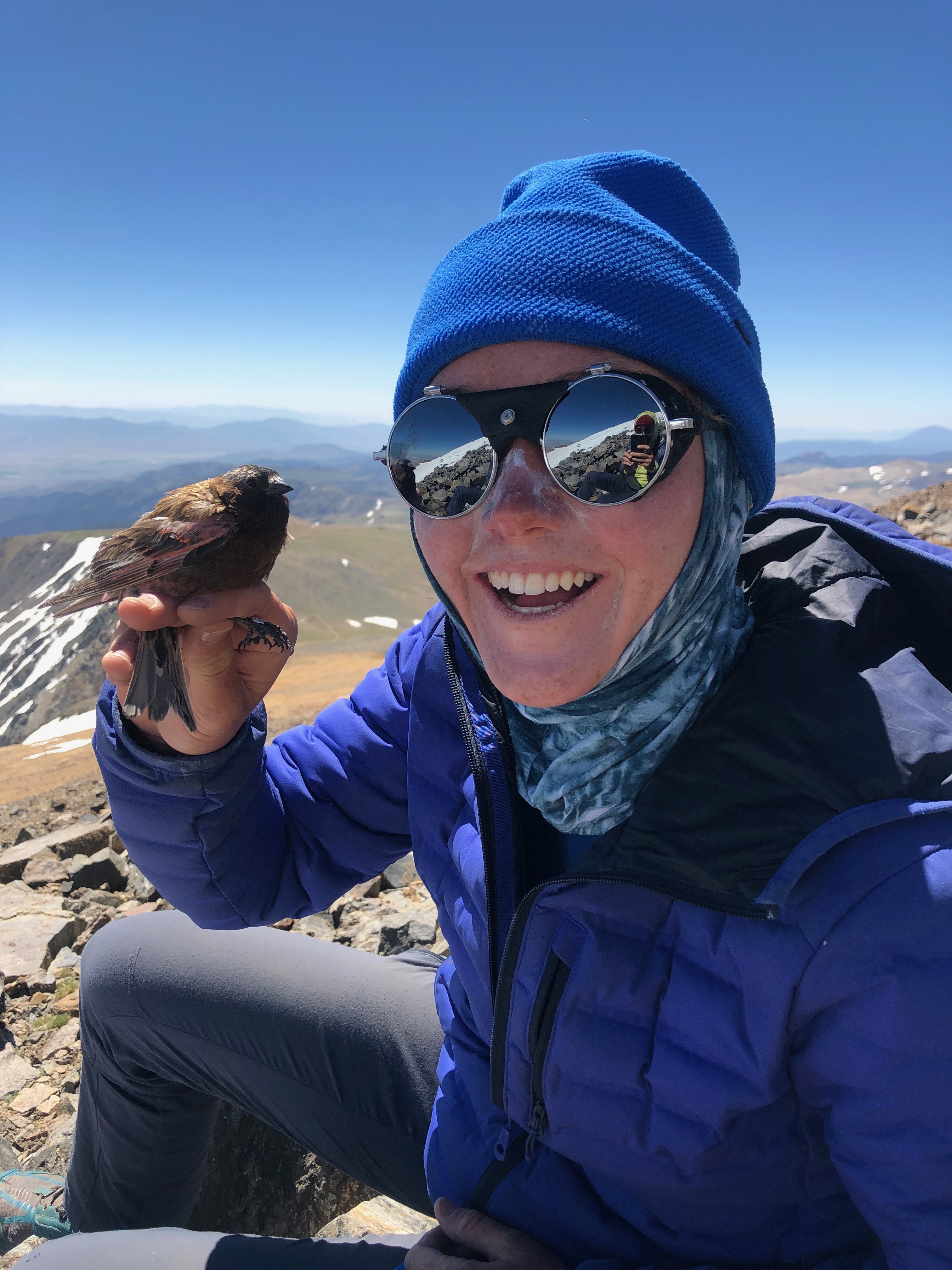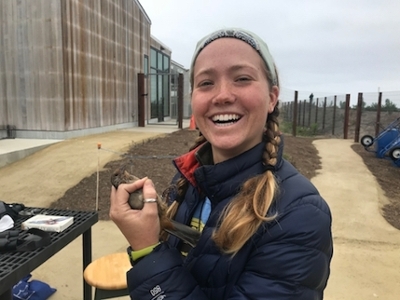Interning at Younger Lagoon Natural Reserve was an enriching academic and social experience. I gained valuable field skills that have allowed me to become a more confident and competent student of ecology.
I began as a restoration intern in the winter of my sophomore year. This was my first internship experience and it left a lasting impact on me. Over the course of the quarter, I became more and more inspired to refine my scientific skills outside of the classroom. Younger Lagoon served as an extension of my academic studies and helped me to connect with the concepts I learned in classes. When I interned at the Younger Lagoon Reserve bird banding station. I had the wonderful opportunity to learn the banding process which includes extricating birds from nets and traps, identification of species, and taking basic body measurements. I have always loved birds but did not have the scientific or observation experience to truly understand their complexity. Interning at the station opened up a whole new field of study (Birds!) and inspired me to apply for the Supercourse.
Supercourse was the experience of a lifetime and cemented for me that I want to be an ecologist. We spent the second half of the course on a remote island in Baja, California, conducting our own scientific research projects. My project centered around the differences in impacts of marine and mangrove subsidy on desert arthropod communities. Struggling through the process of designing our question, implementing the field design, and collecting and analyzing our data opened my eyes to the realities of field research. I learned that though every study has its challenges, it has the capacity to teach me something new and contribute valuable knowledge to the scientific community.
The scientific skills I gained in Supercourse combined with the field skills I learned at Younger Lagoon Natural Reserve helped me secure my current position assisting with research on Gray-crowned Rosy Finches in the Sierra. Working in the mountains this summer has been challenging but infinitely rewarding. Field work in the Sierra is much harder than I expected and has pushed me to challenge myself to conduct surveys in remote mountain terrain. Becoming intimately familiar with the local flora and fauna across the Sierra range has kickstarted a passion for conservation and mountain science and has set my career goals in focus. I am cultivating a strong interest in conducting research that identifies the impacts of climate change on high altitude species and what steps the scientific community can take to preserve the habitat and ranges of at-risk species.
If I had not become involved with Younger Lagoon Natural Reserve, I doubt that I would have the skillset and the connections that I currently have. I am truly grateful for the mentorship I received at Younger Lagoon; the wisdom and dedication of the staff has helped me to establish a firm foundation in field work and set me on the path to where I am today...12,000' high and searching for birds!
About Sarah Albright

During her second year, undergraduate Sarah Albright interned on the Younger Lagoon Reserve restoration field team. The following year, she interned at the Younger Lagoon Natural Reserve bird banding station. Building on the skills she developed at Younger Lagoon Reserve, Sarah went on to complete the Ecology & Conservation Supercourse (BIOE 151ABCD), co-taught by Professor Don Croll and Natural Reserves Director Gage Dayton during the spring of 2019. Sarah is currently participating in the Center to Advance Mentored, Inquiry-Based Opportunities in Ecology (CAMINO) summer internship program, and is assisting Ecology & Evolutionary Biology graduate student Tim Brown (Zavaleta Lab) with research on Rosy finches in the Sierra Nevada.
B.S. '20, Ecology & Evolutionary Biology

